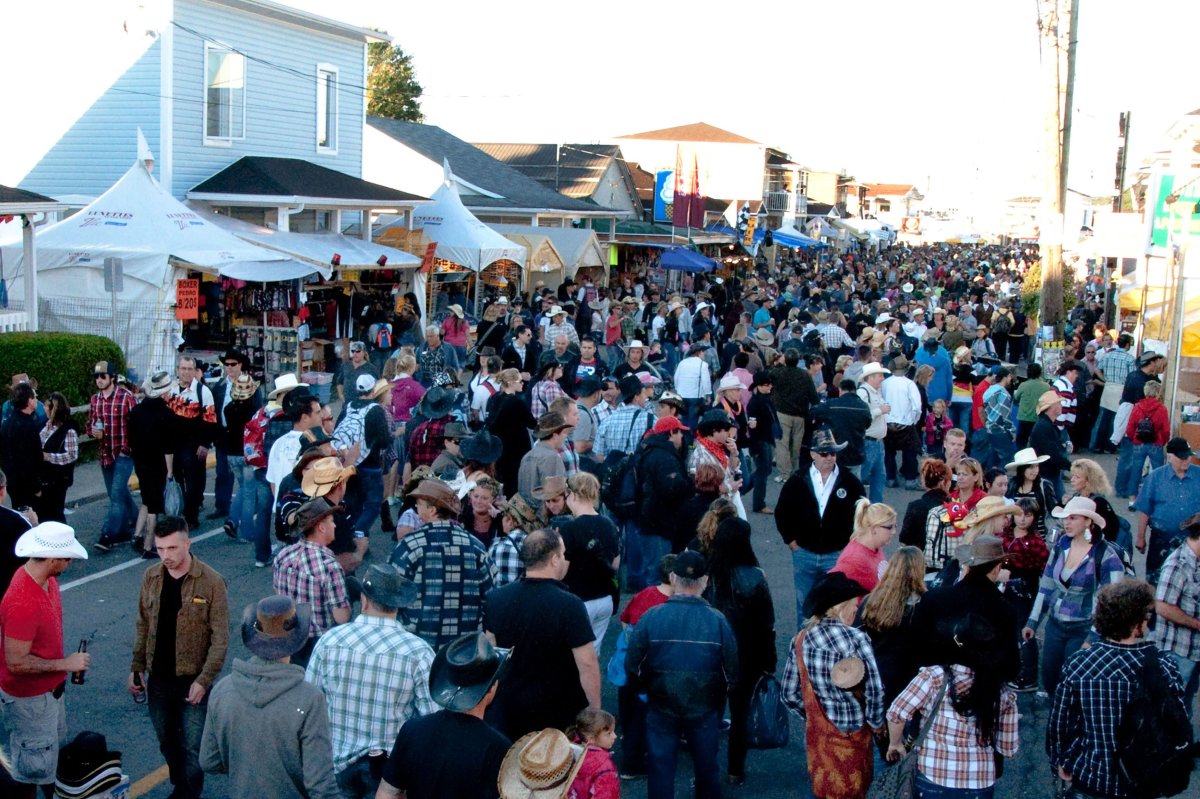A popular western festival and a Montreal law professor are at odds again over whether rodeo events in Quebec last year contravened the province’s animal-welfare rules.

Alain Roy of Université de Montréal published a report Wednesday using evidence gathered by observers at 20 such events and analyzed by a veterinarian.
READ MORE: Owner of Revelstoke Petting Zoo charged with animal cruelty
He says it demonstrated that the animals were exposed to serious risk and injury as well as psychological distress.
That would violate a Quebec law adopted in December 2015 regarding animal welfare and safety that prohibits abuse or mistreatment affecting the health of an animal or any act that could expose them to distress.
However, the promoters of the popular Festival Western de St-Tite in central Quebec pushed back Wednesday, dismissing the report as biased.
In a statement, they said the findings were based solely on the conclusions of a single veterinarian and derived from what they called an abusive interpretation of the law.
READ MORE: 3 people charged with animal cruelty in ‘Langley 66’ puppy mill seizure
The festival said the same images used to shape Roy’s report were given to their own animal treatment specialist who found “no abuse, negligence or unacceptable behaviour” on the part of organizers, volunteers or competitors.
The event’s general manager, Pascal Lafrenière, said the well-being of animals is at the heart of his organization’s values and that rodeos are strictly regulated within governing bodies in Quebec and internationally.
Lafrenière also noted the tone of Roy’s report was expected.
“We are not surprised by the report’s negative findings, since Mr. Roy had already publicly announced his position on rodeos, even before undertaking his analysis,” Lafrenière said.
The law professor had filed a request for an injunction almost a year ago to prevent the holding of a controversial urban rodeo during Montreal’s 375th anniversary celebrations.
A number of groups, including the Montreal SPCA, opposed the event taking place, which was put on by the Saint-Tite group.
A deal brokered between both sides, and approved by Quebec Superior Court, allowed the rodeo to go ahead in August as well as another a month later at the St-Tite festival.
As part of the deal, Roy was able to send three observers to attend and film the events and had unlimited access.
A veterinarian and a behavioural specialist examined the footage of the animals before and after the events.
READ MORE: Man, woman travelling from China arrested by OPP on outstanding animal cruelty charges from 2005
The result was Roy’s 600-page report that found horses and bulls were subjected to serious risk and injuries like fractures.
It was the same in calf-roping and steer-wrestling and, according to the findings, all the animals were exposed to psychological distress.
READ MORE: ‘No excuse for animal abuse’: Vegan activists protest at controversial Toronto restaurant
“The treatment of horses, bulls, steers and calves in rodeos is irreconcilable with the provisions of the new law, according to which animals are no longer objects, but ‘beings endowed with sentience’ whose welfare and safety must be assured,” Roy said in a statement.
A provincial committee that falls under the jurisdiction of the Agriculture Department will determine any next steps, but Roy said if the government fails to act, animal-rights advocates are prepared to pursue further action.
READ MORE: Animal cruelty charges laid against two West Grey residents
Agriculture Minister Laurent Lessard told reporters in Quebec City he will wait to hear back from the committee, but believes rodeos — either in Quebec or elsewhere — could continue while respecting the province’s animal-welfare rules.



Comments